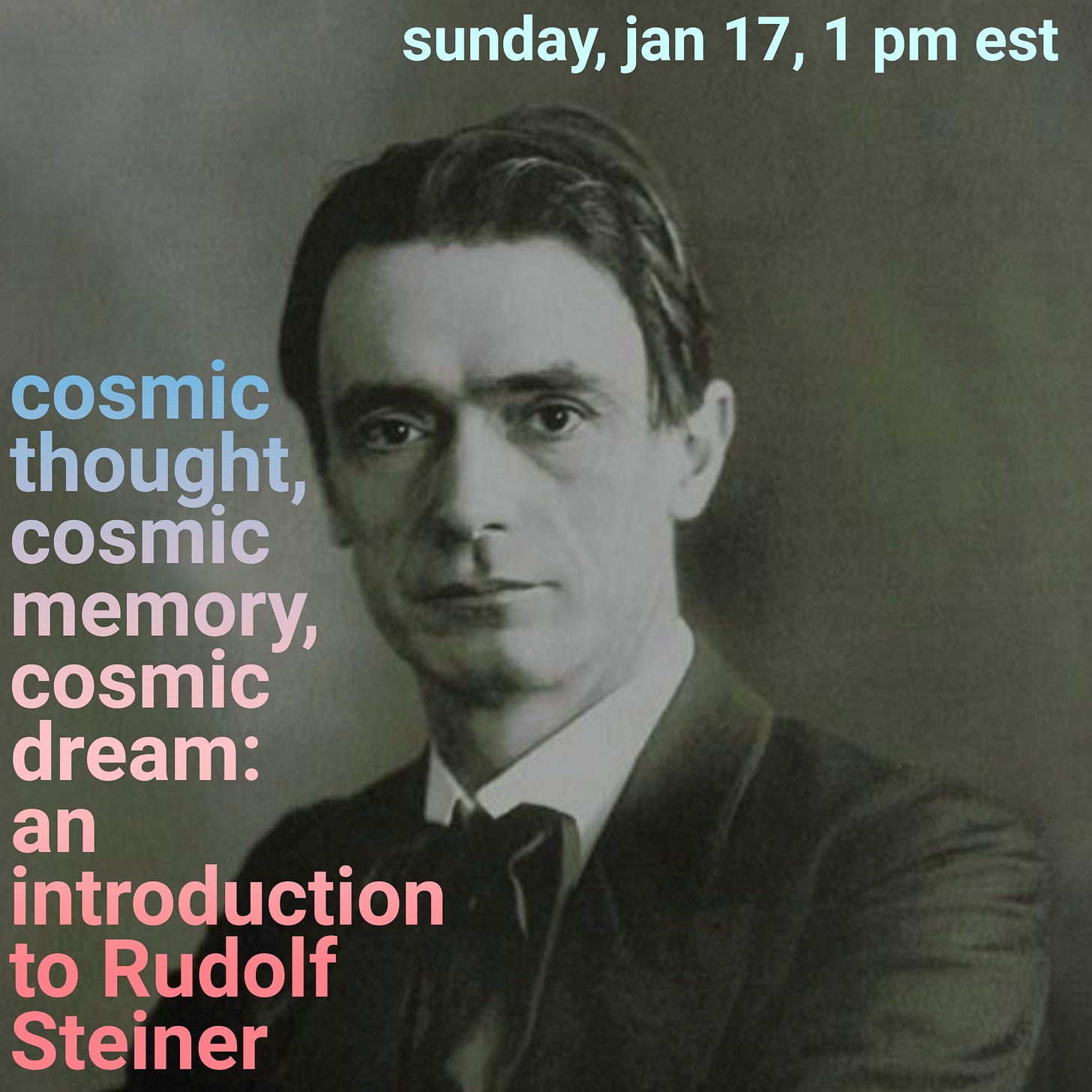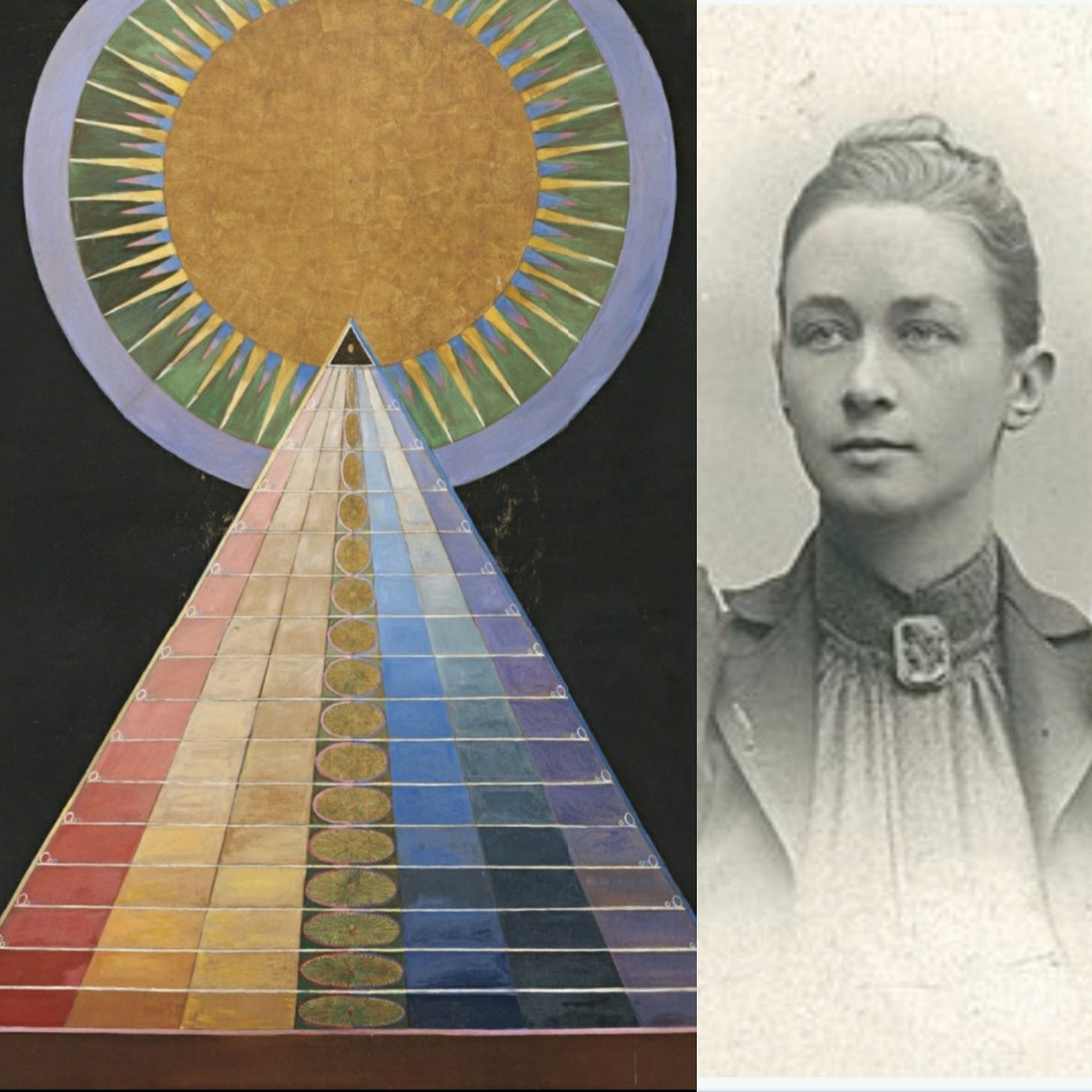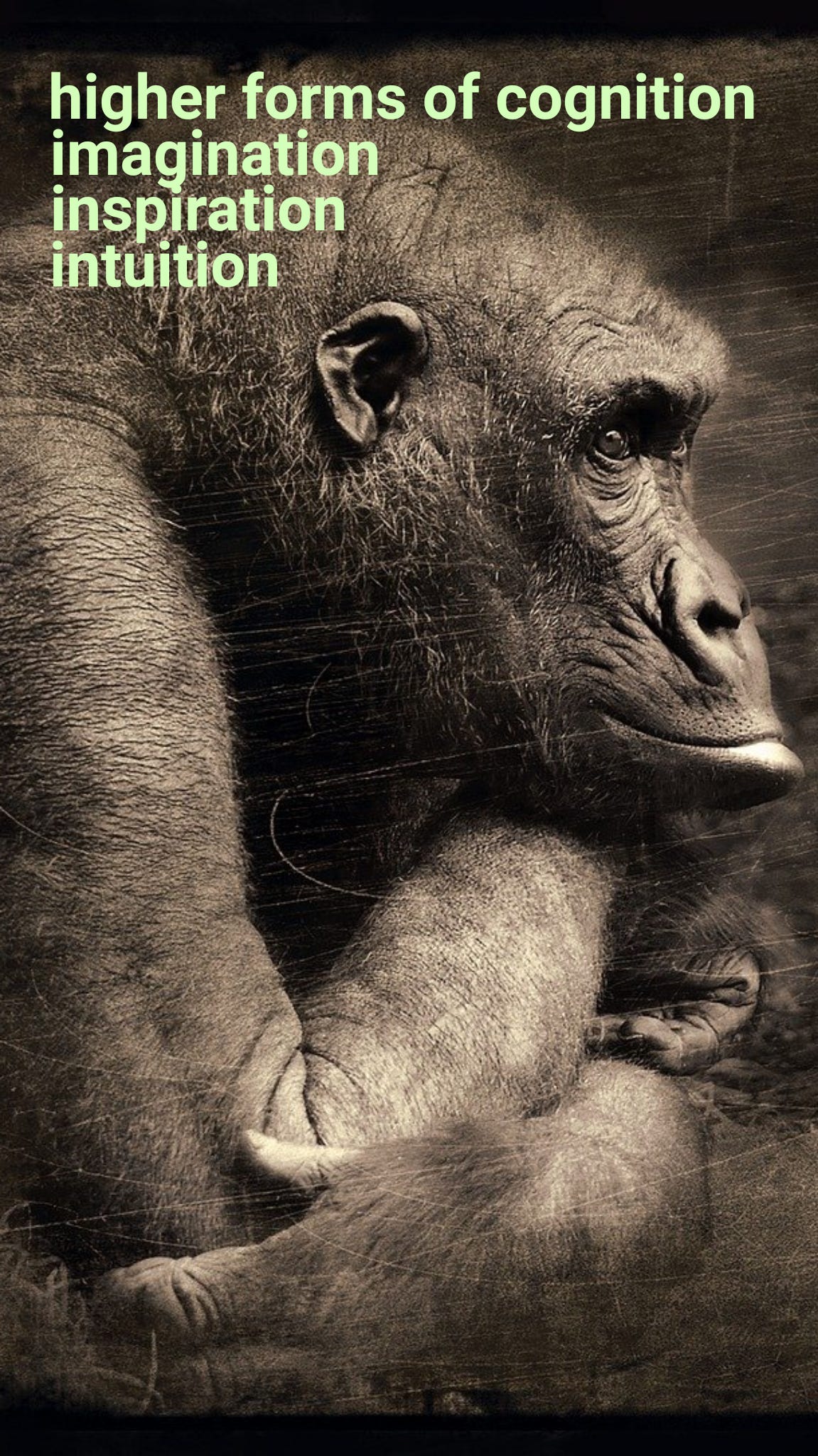Cosmic Thought, Cosmic Memory, Cosmic Dream
An introduction to Rudolf Steiner
Please join me next Sunday for a lecture and discussion on the work of Rudolf Steiner. Tickets are $25 but only $15 if you get them before next Wednesday. Use the code “EarlyBird” at checkout. Paid subscribers receive free access to this and future seminars. Check out subscriber options here.
Far in advance of his own time, Rudolf Steiner may be the most important thinker for our age, for reasons we will explore in this workshop.
The Austrian-born Rudolf Steiner (1861-1925) was a visionary philosopher, architect, artist, and occultist. He is best known today for developing homeopathy and establishing Waldorf Schools, still the largest movement of independent education in the West, as well as creating biodynamic agriculture, a forerunner to today’s organic farming. Despite these achievements, his works are rarely read outside of Anthroposophic circles. Anthroposophy is the "white occult" movement he founded over a century ago to counteract the negative occult currents he saw gathering force in Europe at that time.
According to cultural critic William Irwin Thompson, the “Steinerian vision” “looks at the human as so completely embedded in the animal, vegetal, and mineral evolution of the solar system that it becomes nonsense to separate a fictive ‘matter’ from mind, and a mere three dimensions from ten. . . . All of the seemingly mystical perceptions of Steiner have a biological relevance that fits a new kind of science, and a new kind of culture.”
The recently rediscovered abstract artist Hilma af Klint was Steiner’s student. Her paintings convey esoteric ideas and principles from Anthroposophy.
When I discovered Steiner, I was amazed by the exalted quality of his thinking—opening onto vast new realms of visionary possibility—and his deep humanity. Against the materialist tendencies of his age, he proposed a “spiritual science” as rigorously grounded as any of the natural or behavioral sciences, but based upon “supersensible” perceptions, attained through an evolution of our cognitive capacities. “Spiritual science attempts to speak about non-sensory things in the same way that the natural sciences speak about sense-perceptible things,” he wrote.
Steiner conceived of thinking as a spiritual path: “In thinking we have that element given us which welds our separate individuality into one whole with the cosmos. In so far as we sense and feel (and also perceive), we are single beings; in so far as we think, we are the all-one being that pervades everything.”
From his visionary explorations of the Akashic record, Steiner believed he incarnated with a specific mission: To bring the knowledge of reincarnation back to the West, which we had lost with the rise of Christianity and the closing of the Pagan Mystery Schools. In Steiner's elaborate cosmology, not only do individuals return again and again, but the Earth itself reincarnates. Steiner believed that we are approaching the end of the fourth incarnation of the Earth. This gives us new esoteric capacities and responsibilities. In his books and lectures, he defines a healthy path for esoteric self development that is still relevant today.








Which Steiner books are the best intro to his work? my daughter went to Waldorf so anything other than the education system. thx
Hi! Can you pls record for those who cannot make the scheduled time? Thx!